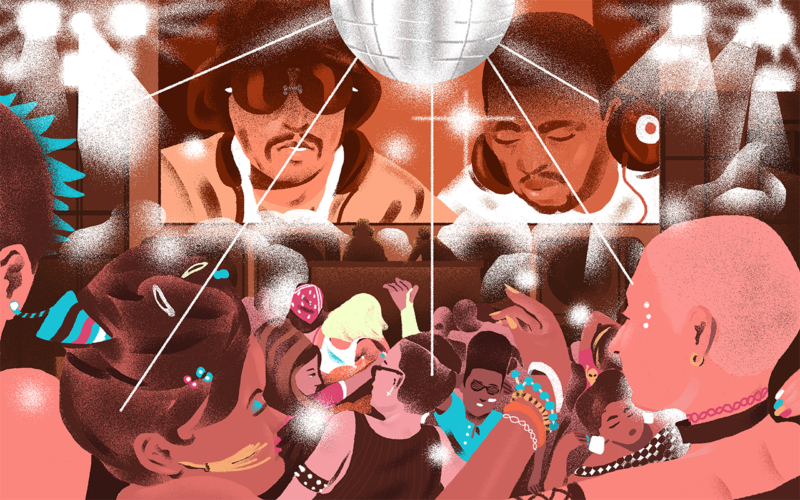Illustration: Richard Chance
From studio discoveries to the stories behind genre-defining sounds, The Sound is an exploration into the creative process of today’s innovative artists.
Now, following Detroit’s annual Movement Festival, we’re featuring producer-curated sample packs, contests, and interviews with the leading voices in Detroit techno and house. We conclude our three-part editorial series with an exploration of Detroit techno and house from the 2000s to give you an insight into the DNA of music that changed the world.
Moodymann – Black Mahogani (Mahogani Music, 2004)
Though Kenny Dixon released his first album as Moodymann with Silentintroduction in ‘97 (featuring the excellent “I Can’t Kick This Feeling When It Hits”), Dixon’s most beloved masterpiece came in the form of 2004’s Black Mahogani. The title track’s lush and supremely funky arrangement dropped jaws among house, soul, and techno lovers alike with its textures, delicious basslines, and MPC backbone. Over the years Moodymann has proven himself to be Detroit house’s finest.
Omar S – Day (FXHE, 2004)
Another key figure in the realm of Detroit house music, Omar S landed firmly on the map with the velvety 2004 A-side, “Day.” Calling to mind the glow of classic Motown with a sunny Supremes sample, the track reminds us of Detroit’s softer side after years of angular sci-fi.
Kyle Hall – Solar Funk (Wild Oats, 2010)
Enter Kyle Hall, one of the greatest talents in Detroit’s new wave of house producers. Born in ‘91, Hall came on the scene as Detroit’s wunderkind, quickly achieving approval from luminaries Theo Parrish and Moodymann. Warm and colorful, Hall’s music operates at the intersection between deep house and boogie, effortlessly putting forth a vibe time and time again. When the 19-year-old Hall dropped “Solar Funk,” the world was faced with a new warm and naturalistic Detroit sound.
Floorplan – Never Grow Old (M-plant, 2014)
Sampling the southern gospel song of the same name, Robert Hood pours the religious spirit of Detroit into seven minutes of minimal techno euphoria. On “Never Grow Old,” Hood harnesses the focal points of his technique that paved the way for Berlin techno in the 90s: highly organized utilitarian rhythms and patient evolution.
Jay Daniel – Paradise Valley – (Ninjatune, 2017)
Detroit’s brightest young star today alongside Kyle Hall is Jay Daniel, a prodigious DJ who proved on his latest album that he could stretch the possibilities of dance music with loose, live instrumentation. Tiring of pressing buttons, Daniel picked up his drum sticks and went analog on his first offering for Ninjatune, which lives up to the richest tracks in Detroit’s mesmerizing legacy.
As ingrained in the musical lexicon as techno has become, its origins are still mystified to this day. As is the case with its predecessors, disco and house, techno was and is black music, to which the careers and life soundtracks of so many people are indebted. This crash course in Detroit music history is by no means exhaustive, and we’d like to close it with some honorable mentions:
S/O Blake Baxter, Eddie Fowlkes, Mike Banks, Carl Craig, Theo Parrish, Terrence Dixon, Stacey Pullen, Marcellus Pittman, John Collins, Patrice Scott, DJ Stingray, Claude Young, and so many more…
We invite you to dig deeper.
Explore royalty-free sounds from leading artists, producers, and sound designers:
June 20, 2018



